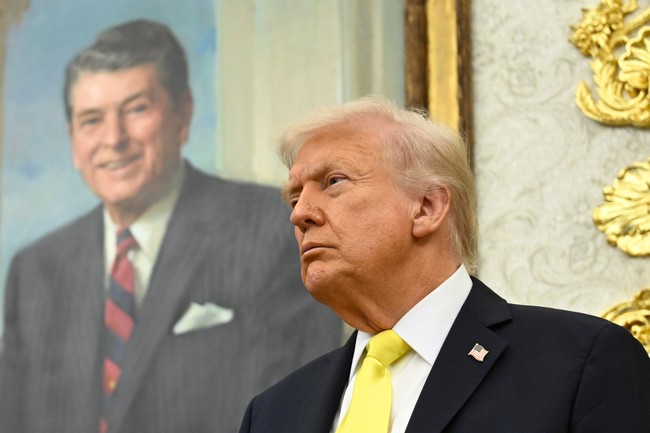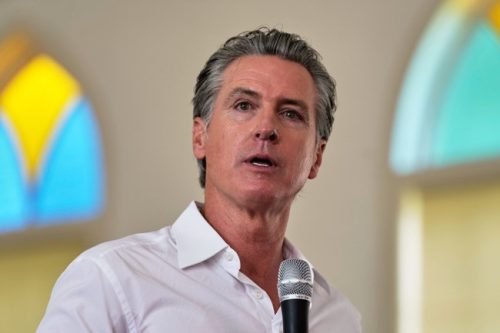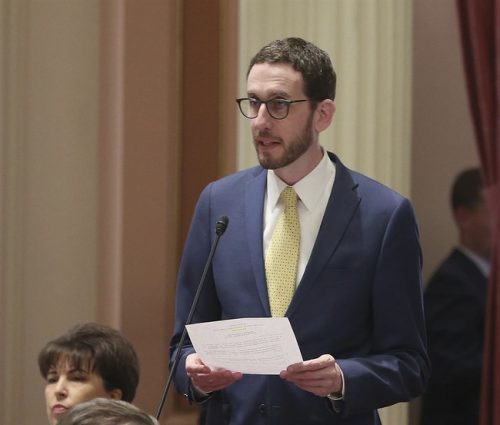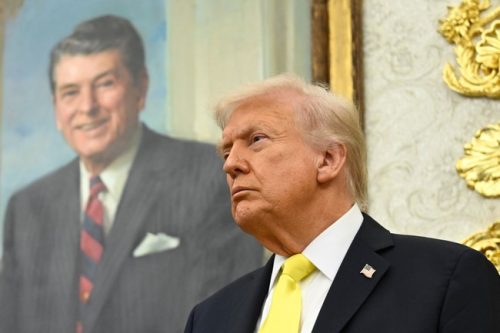The Trump administration is floating a plan to offer 50-year mortgages as a tool to tackle housing affordability, pitching longer terms as a way to lower monthly payments and help younger buyers get into homes while sparking debate over long-term costs and market risks.
Housing affordability is the driving issue behind this proposal, which President Trump has publicly promoted as part of a broader push to make homeownership more accessible. The idea is straightforward: stretch repayment over 50 years so monthly payments fall, letting more Americans, especially young buyers, afford a mortgage payment without renting forever. Supporters call it a pragmatic fix to a problem that has left too many priced out of the market.
The United States Director of Federal Housing, Bill Pulte, reposted a Truth Social post from President Trump depicting a list of “Great American Presidents,” with President Trump shown alongside Franklin Delano Roosevelt, the creator of the 30-year mortgage. “Thanks to President Trump, we are indeed working on the 50-year mortgage – a complete game changer,” he wrote on Saturday. That public endorsement has driven headlines and pushed the idea into the policy conversation faster than usual.
Proponents argue the 50-year mortgage is not a magic bullet but a useful weapon in a larger toolkit for expanding homeownership. The administration frames it as especially aimed at younger Americans who face stagnant wages, high rents, and steep down-payment hurdles. From a Republican standpoint, it’s a market-aware proposal that seeks to unblock homeownership without massive subsidies or heavy-handed mandates.
Thanks to President Trump, we are indeed working on The 50 year Mortgage – a complete game changer. https://t.co/HZDPzO0qJG
— Pulte (@pulte) November 8, 2025
We hear you. We are laser focused on ensuring the American Dream for YOUNG PEOPLE and that can only happen on the economic level of homebuying. A 50 Year Mortgage is simply a potential weapon in a WIDE arsenal of solutions that we are developing right now. STAY TUNED!
Critics on both sides have already voiced concerns, warning that stretching loans out to 50 years may trade lower monthly bills today for much higher lifetime interest costs. Financial experts point out that even small reductions in monthly payments can come with a substantial increase in total interest paid over decades, and that longer terms can affect refinancing dynamics and home equity accumulation. Lenders and regulators would have to weigh underwriting standards, servicing practices, and the impact on the broader mortgage market.
There are practical questions about which programs and institutions would offer or guarantee these loans, and whether they would require new rules at the federal level. Past shifts in mortgage policy, including the adoption of the 30-year mortgage in the New Deal era, reshaped housing markets in ways that took time to unfold. This proposal would likely prompt a careful look at borrower protections, default risk, and how to prevent unintended consequences for both buyers and taxpayers.
Even so, the political logic is clear: Republicans can position a 50-year mortgage as a pro-growth alternative that backs ownership over dependency. It avoids large direct spending programs while using financial engineering to expand access, which fits a conservative preference for market-oriented solutions. That framing will be central if the administration moves from talk to concrete policy proposals.
The national conversation about homes should include clear numbers and trade-offs, not only slogans. Policymakers will need to model how monthly savings stack up against total interest, how different income groups fare, and whether the program truly helps households build wealth. If designed carefully, some longer-term products could serve as transitional tools for first-time buyers who later refinance into shorter terms as incomes rise.
Editor’s Note: After more than 40 days of screwing Americans, a few Dems have finally caved. The Schumer Shutdown was never about principle—just inflicting pain for political points.






